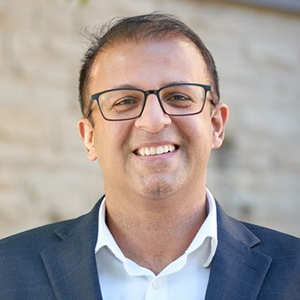Researchers receive nearly $9-million in CIHR funding to tackle urgent health challenges

By Communications
Reducing inequity in health systems. Using artificial intelligence to develop therapies for breast cancer. Targeted and immuno‐therapy to overcome resistance in aggressive cancers.
With nearly $9-million in federal funding through the Canadian Institutes for Health Research (CIHR), Schulich School of Medicine & Dentistry researchers will press forward with tackling urgent health challenges. An additional $2.9 million in funding was awarded to four research projects at Lawson Health Research Institute, the research arm of London Health Sciences Centre and St. Joseph’s Health Care London.
Schulich Medicine researchers received funding through CIHR’s most recent project grants representing a 40-per-cent grant success rate, the highest since 2019.
The quality and range of these projects reflect the core value of research excellence as outlined in Schulich Medicine & Dentistry’s strategic plan, said Robert Bartha, PhD, Vice Dean, Research & Innovation.
“To maximize our research impact, we are creating an environment and culture that focuses on research excellence, collaboration and mentorship, and leverages our ability to translate discoveries into practical health improvements,” Bartha said. “This funding round definitely highlights the exceptional quality and diversity of the research programs we have at Schulich. This is certainly worth celebrating!”
 Shehzad Ali, PhD, Canada Research Chair in Public Health Economics at Schulich School of Medicine and Dentistry
Shehzad Ali, PhD, Canada Research Chair in Public Health Economics at Schulich School of Medicine and Dentistry
Close up on health equity
When decision-makers evaluate the cost effectiveness of a health policy or therapeutic intervention, they often look simply at improving the overall health of the population at a reasonable cost, regardless of its distribution. However, health inequities, caused by the unfair and avoidable differences in health between groups of people, are often left out of policy analyses, costing these disadvantaged groups years of healthy living and placing a financial burden on the health system.
Shehzad Ali, PhD – whose research focuses on the equity and efficiency of health systems – is undertaking a research project to look at how to maximize population health while integrating equity into policy evaluations to better inform decision-making. The resulting guidelines will, for the first time, facilitate integration of equity into economic evaluations. The project received CIHR funding of $439,876 over four years.
“I’m trying to bring the two groups together – those who want cost-effective allocation of resources, and those who want this allocation to be equitable across all parts of the population,” said Ali, Canada Research Chair in Public Health Economics at Schulich School of Medicine. “Studies have shown that we don’t just care about maximizing population health. We also care about reducing inequity to the point where we are willing to sacrifice efficiency to do so.”
Ali’s research will first explore the challenges and opportunities of incorporating equity into real-world economic evaluations through interviews with key stakeholders in Canada, such as, Ontario Health and Alberta Health Services. The team will then conduct ‘equity-efficiency trade-off’ experiments using population samples to quantify the relative value society places on reducing inequity at the cost of sacrificing efficiency. The work will result in guidelines to help policymakers incorporate equity considerations into their cost effectiveness models.
“The hope is that this work will inform allocation of resources in the health system in a more equitable way, so we can better reflect societal values in our policy decisions,” Ali said.
CIHR project recipients
Brian Allman - Neural Mechanisms Supporting Listening in Noisy Environments: Implications for Normal and Impaired Hearing.
Brian Corneil - Temporal Interference stimulation in the awake brain: Spatiotemporal resolution and interactions with endogenous activity.
Dimitrios Dikeakos - Mechanisms of cell surface protein regulation by the HIV‐1 accessory proteins Nef and Vpu.
Lakshman Gunaratnam - Deciphering mechanisms of maladaptive repair after acute kidney injury.
Ilka Heinemann - Rescuing Charcot Marie Tooth disease‐ causing tRNA synthetases.
David Holdsworth - Combined gamma probe and ultrasound imaging system for cancer surgery.
Anthony Nichols - Targeted and immuno‐therapy to overcome innate and acquired resistance in aggressive MAPK‐ addicted cancers.
Silvia Penuela - Targeting Pannexin‐1 Channels in Glioblastoma Multiforme.
Andrew Pruszynski - Touch processing in the distal branches of first‐order tactile neurons.
Rommel Tirona - Drug transporters as treatment targets for mushroom poisonings.
CIHR priority announcement recipients
Frank Beier - The role of Pannexin 3 in aging-associated osteoarthritis.
Pingzhao Hu - Artificial Intelligence‐empowered approaches towards the development of combination therapies for HER2+/ER+ breast cancer.
Wei‐Yang Lu - Nitric oxide deficiency and cerebellar Purkinje neuron aging.
Arghya Paul - Developing tough, elastomeric, bioactive hydrogel dressings to accelerate in situ bone repair.
Christopher Pin - Tumour cell reprogramming in pancreatic ductal adenocarcinoma as a means for therapeutic resistance.
Caroline Schild‐Poulter - Investigating the molecular pathology of WDR26 deficiency.
A full list of Western University’s CIHR funding recipients can be found here.








